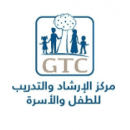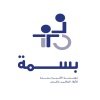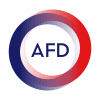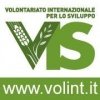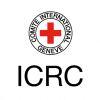External Evaluation of a project
Terms of Reference
External Evaluation of the project
Women´s Empowerment through Psychosocial Intervention
- Introduction
About the Guidance and Training Center for the Child and Family (GTC)
The Guidance and Training Center for the Child and Family (GTC) was founded in Bethlehem in 1994 to provide mental health services, special education services and training for Palestinian children and families.
The GTC follows a holistic approach to meet the needs of the children and families and support healthy social, cognitive, emotional and educational development. The GTC focuses not only on the problems of the individual and families but the environment that they live in and how the cultural context affects them. As part of this approach the GTC nurtures relationships with parents and families, schools, governmental and private organizations.
The GTC works within 5 main programs: Therapeutic services, Preventive services, Training and capacity building, that are interrelated and integrated to enable the GTC to reach the following objectives:
- Provide preventive and therapeutic services in the area of mental health for children and families in the Palestinian society.
- Pursue the development of knowledge, skills and experiences of professionals in the field.
- Conduct research through programs that meet the needs of the target groups
- Participate in the development of mental health in the Palestinian society and the wider international community in support of the millennium development goals.
The Project:
The project is entitled: “Women´s Empowerment through Psychosocial Intervention” is implemented by the GTC in partnership with the Protestant Women’s Association of Austria (Evangelische Frauenarbeit in Österreich, EFA) and co-funded by the Austrian Development Agency (ADA).
The project’s main goal is to contribute to improved gender equality and women´s empowerment through improving couples' dynamics and mental health of divorced women in Palestine. This objective is achieved through strengthening the position of 90 women within their couples' relationships and improving mental health of 150 divorced women and their children living in Bethlehem area, during the period from the 1st of February 2017 through January 31st 2020.
The project aims to achieve impact on the community level through working with the following specific target group:
- 180 persons (70% women (126), 30% men (54)) will participate in 18 awareness raising workshops.
- 90 couples (90 women and 90 men) will benefit from counselling and support group sessions. The project will mainly target newly married couples with the duration of marriage ranging from 1-5 years (aged 16 - 40).
- 150 divorced women will benefit from counselling and support group sessions. The project will target newly divorced women between 1-3 years after divorce (aged 18 – 40).
- 480 children of couples and divorced women are expected to benefit either directly (120 children) through counselling sessions or indirectly (360 children); aged between 1-10 years old.
- Up to 4.000 persons (approximately 2.500 women and 1.500 men) will be provided with psycho-social education through the distribution of leaflets.
Results expected from the project are as follows:
Result 1:
Improved couples' relationships due to increased awareness on the interrelated effects of couples' dynamics and a healthy sexual relationship on mental health of women.
Result 2:
Improved access to psychosocial support and mental health services for divorced women and their children in Bethlehem area.
Result 3:
Increased awareness among decision makers and the community in the West Bank about the effects of unequal marital relationship and divorce on mental health of women and children in Bethlehem area.
- Cause and objective of the evaluation
This is a mid-project evaluation intended for obtaining an external, independent assessment of the implementation of the project so far. The evaluation should investigate the impact, effectiveness, efficiency, relevance and sustainability of the project, and identify lessons learnt that contribute to the improvement of quality of the work of GTC’s services in relation to the improvement of mental health and empowerment of women, couples and children in Palestine. Furthermore, the findings and recommendations of the evaluation team will be integrated into a further development of the project.
Results of the Evaluation will be used by project partners, namely the GTC and the Protestant Women association. The ongoing project is being co-financed by the Austrian Development Agency (ADA) and the agency’s specific requirements regarding evaluations must be met.
- Key questions
The evaluation should respond to the following key question taking into account gender and other cross-cutting issues such as environmental impact and inclusion of people with a disability.
- Relevance
To which extent do the objectives of the project align with the needs of the target groups?
Key questions in this section are:
QUESTION 1: Does the project address the priorities and needs of the targeted groups?
QUESTION 2: To what extent does the project respond to the needs and interests of the beneficiaries?
QUESTION 2: Do the designed strategies correspond to the objectives?
- Effectiveness
Are the objectives of the project/programme being achieved? This criterion measures the extent to which the objectives of a project/programme will (foreseeably) be achieved.
QUESTION 1: Is the Program contributing to improved quality of life of the direct beneficiaries?
QUESTION 2: Are the GTC staff competencies and capacity suitable and effective for the goals of the intervention?
QUESTION 3: Are the approach and tools used (specifically in: group, individual and couples therapy) helping to achieve the specific objective of the intervention logic?
QUESTION 4: Is the intervention successful in raising awareness on the effects of unequal marital relationship and divorce on mental health of women and children, and if so, how?
- Efficiency
Will the objectives be achieved in an economically viable manner? This criterion measures the adequacy of the deployed resources in relation to the achieved results and effects.
QUESTION 1: Are the systems used by the GTC achieving the greatest potential in an efficient way?
QUESTIONS 2: - Are the capacities of GTC sufficient to achieve the expected results and objectives? Are sufficient human and material resources available to strengthen these capacities, in particular as regards the integration of the gender perspective and rights-based approach?
QUESTIONS 3: What are the success factors of the intervention? Which factors are impeding the success and what can be done to reduce their effect?
- Impact
Will the project / programme contribute to the attainment of overall development goals?
QUESTION 1: What difference did the intervention have on lives of beneficiaries?
- Sustainability
Will the intended positive changes (foreseeably) have a lasting effect? This criterion assesses the extent to which the positive effects of the development intervention will continue beyond the end of the project period.
QUESTION 1: What is the likelihood of continued long term benefit from the intervention for beneficiaries?
QUESTION 2: What can be done to ensure that the lessons learnt are incorporated into the work of GTC on the long run?
QUESTION 3: What potential for further development of the project can be identified?
- Evaluation design/ methods
The evaluator should conduct the evaluation using the OECD-DAC standards. It is also important that the evaluation uses a participatory approach, which seeks the views and assessments of all stakeholders and project staff members, while at the same time keeping neutrality and independence.
The evaluator should clarify his/her methodology in the technical section of the proposal submitted to GTC taking into consideration the following:
- Review and analysis of project documents provided by the Project Coordinator including project proposal and narrative reports submitted to funders so far.
- Data collection should include gathering data from different stakeholders in person using focus group discussions and individual interviews.
- Meetings with project staff including the Clinical Director, Psychologists, project management and supervisor.
- Process of the evaluation/ time frame
The evaluation is expected to be implemented during a period of 10 weeks starting on the 20th of February 2019.
The following are deliverables needed to complete the evaluation:
- Kick off meeting – one week after the selection of the evaluator and by Feb - 2019
- Inception report – by March 1, 2019
- Draft of the final report- April 10th 2019
- Final report (around 30 pages with annexes)– by April 30th, 2019
All reports should be written in English.
The Final report should be in English, executive summary shall be presented in both English and Arabic. Further specifications for the final report will be provided to the evaluator.
- Key qualifications of the evaluators
This evaluation will require the services of an expert with the following qualifications:
- Proven previous experience in conducting evaluations.
- Academic degree in a mental health related field.
- Expertise in the field of mental health is a plus.
- Knowledge in civil society co-operation and development cooperation.
- Understanding of the cultural and political context in Palestine.
- Excellent command of Arabic and English.
- Expertise in the field of empowerment of women and girls is an important asset.
- Content of the evaluator’s offer
The content of the evaluator offer should include the following sections:
- CV of the evaluator.
- Technical proposal:
- Outline of the planned evaluation procedure.
- short explanation and justification of the methods to be deployed.
- Evaluation proposed timeframe.
- Financial proposal
- Complete cost estimate of consultant fees including all costs to be incurred, such as transport, accommodation and taxes.
- Offer should be submitted in English language.
- Provide official invoice and certificate of deduction at source, alternatively 10% of payment will be deducted by GTC to settle with the income tax authority.
Please submit the offer and proposal in English by email to [email protected] and [email protected] by February 10th 2019.
Contact Persons:
- From GTC: Fadia Saleh – Administrative and Financial Director
- From the Protestant Women’s Association: Aleksandra Kolodziejczyk – Project manager




